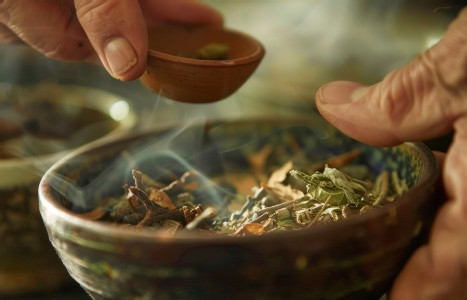As modern medical standardization continues, the field of traditional Chinese medicine has the advantage of comprehensive personalization. For rare or complex cases, deeper consideration of constitution is invaluable. Proper constitutional assessment, especially with first-time clients, can guide desirable and predictable outcomes. This leads to a higher rate of return, and greater trust between you and your patient.
The Name Game
"The name that can be named is not the eternal name." - Lao Tzu
In our field, names have been a contentious topic of discussion the last several years. We may agree that it is best to remove the term "Oriental" from our vernacular, but few agree on what should take its place. In the July 2010 issue of Acupuncture Today, Dr. William Morris, DAOM, PhD, LAc, shared his preference for the term "East Asian" medicine, only to be quickly rebutted in the September 2010 issue by Lisa PH Lin, LAc, EMBA, in favor of "traditional Chinese medicine." Dr. Morris chimed in again earlier this year with his concern over another term, "integrative medicine" while presenting the macrobiome aspects of the term "Ecopsychosocial medicine"–accurate perhaps, but not likely to become a household name.
Further complicating the issue is our licensure and how we market ourselves, which can be at odds. We offer some form of the title "acupuncturist" during our elevator speech (easily recognizable to the average person), then lament neglecting the elements of herbal therapy, therapeutic massage, and dietary counsel that comprise our diverse tradition of medicine.
If you think we are the only ones with this dilemma, Western medicine has gone through a parallel identity crisis. "Doctor" has been formalized back to "physician" and "health care provider" has usurped "health care practitioner." A friend of mine who recently graduated from medical school, bemoaned the title "value provider" attached to the position offered by a corporate healthcare organization where she interviewed.
Even the term "Western medicine" has had its fair share of linguistic suitors. "Allopathy" is an old term used to contrast drug therapy from the tradition of "homeopathy." "Biomedicine" is clearly defined, but what medicine, conventional or traditional, isn't rooted in biology?
Then there is the word "conventional," which implies a practice that presently holds public persuasion, political authority, and economic prominence. Does the average patient –I'm sorry, health care consumer –realize that the word "conventional" is not an assurance of efficacy? In reality, history has shown that a conventional medical paradigm without roots in traditional wisdom must wrestle through layers of false assumptions and faulty practices that have endangered the lives of countless individuals. We can observe this in the slow adoption of hand washing in the mid-19th century, right up to the modern era with the damaging effects of hormone replacement therapy as revealed by the Women's Health Initiative.
We call Chinese medicine "traditional" to highlight the fact that it is a mature practice of medicine, rooted in nature and the observations of our ancestors. The recent dietary trend of eating Paleolithic foods (or Paleo) has adopted this notion, coining the term "ancestral health" to capture a wide body of research into this area. It's a clever term, however not applicable to our field; "ancestral Asian medicine" is not likely to gain traction anytime soon, either.
Attempts to distance ourselves from archaic language in deference to a modern Western tone has spun the terms "alternative" and "complementary medicine," both nondescript and subservient titles to the conventional model. The term "integrative medicine" has gained some ground (Dr. Morris' concerns notwithstanding), and functional medicine has emerged as a strong counter movement and criticism of conventional "dysfunctional" medicine.
Functional medicine is important to recognize as many practitioners of Chinese medicine and naturopathy have adopted its theories and protocols. This is a welcomed addition to the repertoire of the traditional Chinese medicine practitioner as it fills a need created from the environmental and lifestyle degradation endemic to the industrialized world.
One could further argue that functional medicine is Chinese medicine and vice-versa. The common thread and term that connects the two different schools of thought is the fact they are "holistic," a grounding and accommodating term that quickly and cleanly defines one's healing philosophy amidst the shifting sands of medical terminology.
The greatest asset of an education in traditional Chinese medicine is the ability to think holistically. There is no guarantee that a degree from an accredited school of Chinese medicine will translate into a lifelong practitioner of holistic medicine, though the seduction of reductionist thinking regularly tempts us to believe this. Still, if we hold true to our roots, a holistic integrity will shine through no matter what modality we practice.
Consider broadening your word usage to capture the breadth of holistic medicine. As an example, I can't imagine my dispensary without the sugar crave-ending Ayurvedic herb Gymnema and the immune-modulating native American herb Echinacea. As you avail yourself of these remarkable plants, I would implore you to consider describing yourself not as a "Chinese herbalist," but simply as an "herbalist."
Diet is a pillar of Chinese medicine. Like many practitioners, I also incorporate whole-food nutritional supplements in my practice to help compensate for the nutritional deficiencies often accrued in patients eating the Standard American Diet. Although you may not classify yourself as a "nutritionist," offering dietary and nutritional advice communicates a commitment to treating patients holistically.
Words fall short in describing the eclectic nature of our education. Coupled with varied life experiences and post-graduate education, the seasoned practitioner is likely a conglomerate of many holistic modalities. What's an acupuncturist, herbalist, nutritionist, functional medicine practitioner to do?
I've spun the wheel of the name game and have arrived at the conclusion that we are first proponents of holistic medicine, and second, practitioners of a given modality. I invite you to share the wisdom of holism in the treatment room. Educate patients on their connection with nature and the importance of right relationship (to borrow the shamanic concept). We are more than our modalities, we are a rich wisdom tradition that addresses the root cause of illness. Don't miss the opportunity to rekindle the Shen of your patient with the interconnectedness of life.
In the end, it doesn't matter if the medicine is "traditional" or "conventional," "Western" or "Eastern," so long as it treats the whole-person safely, effectively, and compassionately. As the inheritors of traditional Chinese medicine, we are well suited to incorporate medical science breakthroughs, while honoring our classical roots by leveraging systems thinking. For you are not merely a practitioner, but a voice of holistic medicine and an example of balanced living.
We live and work in communities that heal together. As one strand grows stronger, so too does the rope of our coexistence. This is the promise of holistic medicine. This is our legacy, regardless of the name.


